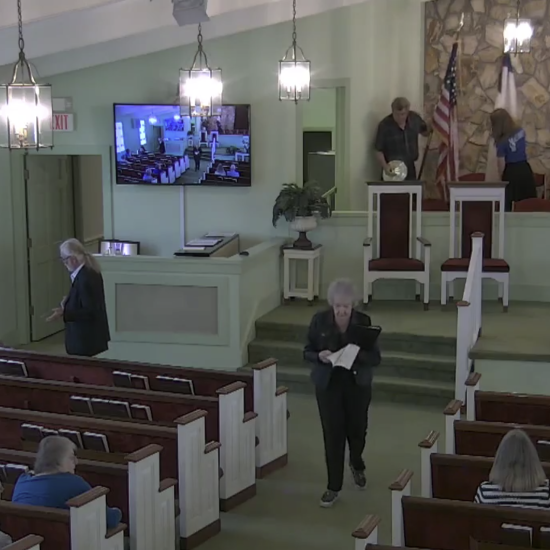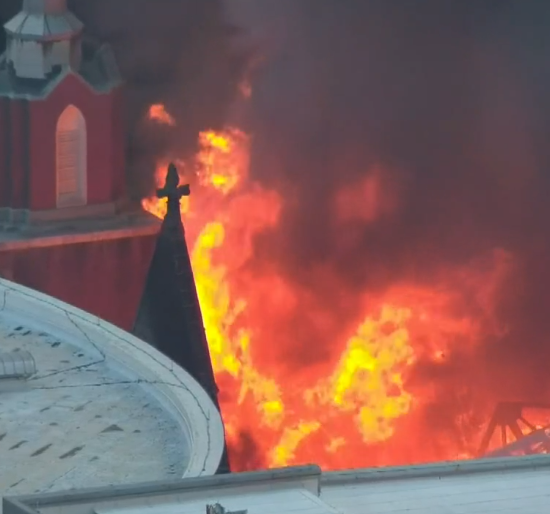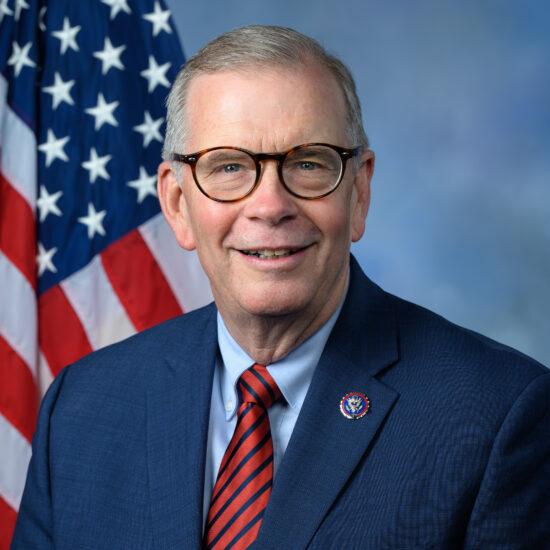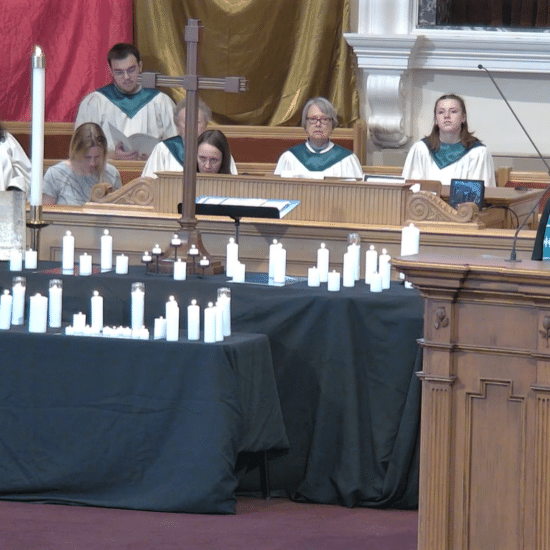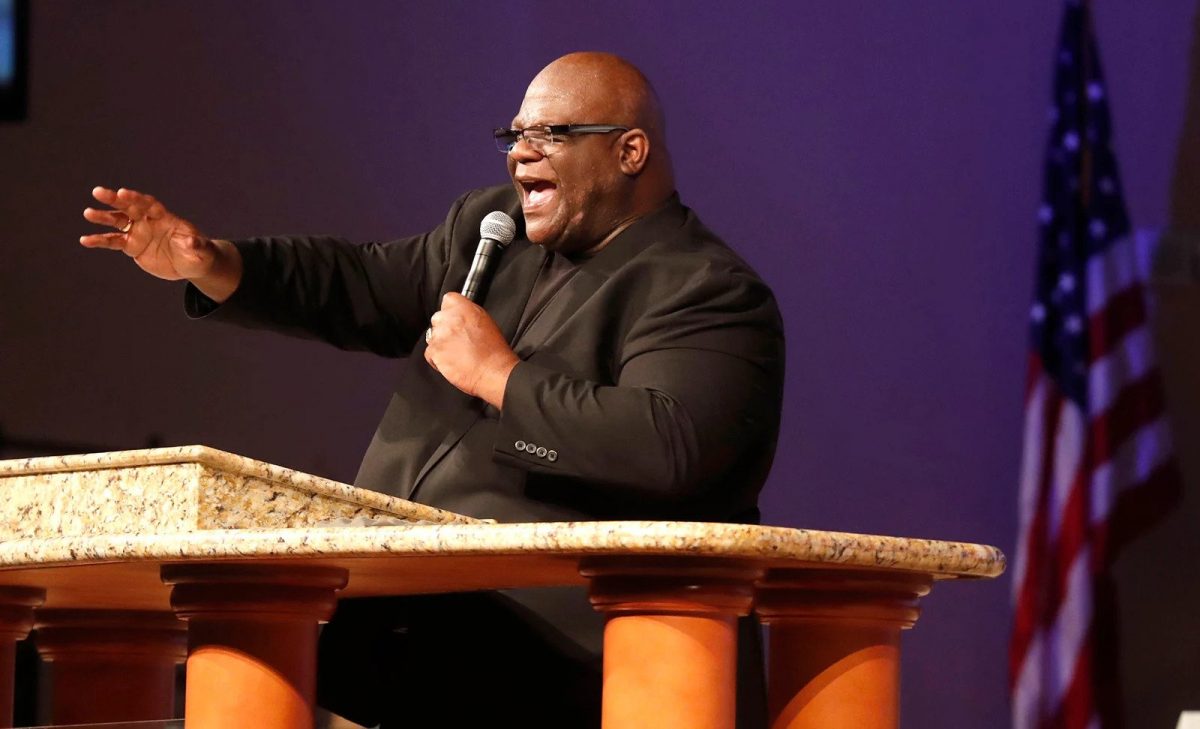
(RNS) — Southern Baptist Convention officials have strongly condemned a letter sent by a critic of the SBC to the Rev. Dwight McKissic, a Black pastor in Texas who recently announced he was pulling his church out of the Southern Baptists of Texas Convention. The Jan. 25 letter came from John V. Rutledge of Colorado Springs, Colorado, who has published two books that find fault with the SBC.
“In recent years the Southern Baptist Convention has been repenting (foolishly) of the ‘sin’ of whiteness, and has rebaptized itself as an exemplar of diversity,” Rutledge wrote in his letter, adding that “Negroes” did not deserve “appointive positions” in the denomination.
At the top of the letter, Rutledge referred to a headline in the Baptist Standard: “McKissic cuts ties with SBTC, potentially with SBC.” The Baptist Standard is an independent publication partner of the Baptist General Convention of Texas, the more progressive of the two Baptist state conventions affiliated with Southern Baptists.
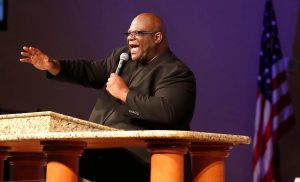
Dwight McKissic, pastor of Cornerstone Baptist Church, speaks during services in Arlington, Texas, on June 7, 2020. (LM Otero/Associated Press)
McKissic, who in the past has successfully pushed the nation’s largest Protestant denomination to condemn White Supremacy and criticize the Confederate flag, took issue in recent weeks with the Texas state convention’s recent rejection of critical race theory, a set of academic ideas about systemic racism, suggesting he might also leave the Southern Baptist Convention if a similar statement by the denomination’s seminary presidents, issued in November, is adopted more widely.
After McKissic posted Rutledge’s letter on his Facebook page, SBC Executive Committee President Ronnie Floyd tweeted that Rutledge “left the Southern Baptist Convention twenty years ago” and said the author’s letter contradicts “our commitment to human dignity.”
SBC President J.D. Greear affirmed another tweet, by the Rev. Marshal L. Ausberry Sr., president of the SBC’s National African American Fellowship, describing the letter in a tweet as “stone cold racist.”
“I agree with our convention’s 1st VP and am infuriated that any pastor would receive something like this,” Greear, a North Carolina pastor, tweeted. “This has no place in any gospel-believing association of churches, and should be renounced all the way around. This attitude is anti-gospel and should be treated as such.”
Likewise, Jim Richards, executive director of the Southern Baptists of Texas Convention, issued a statement saying “The SBTC, with great urgency, denounces both the statements and sentiments of Mr. Rutledge’s letter to Pastor Dwight McKissic.” Richards added that though McKissic chose to withdraw his congregation from that state convention, “he is still considered a beloved brother and gifted pastor. He nor any of our African American brothers and sisters in Christ should ever have to endure such racist, ungodly remarks.”
McKissic tweeted about his gratitude for the officials’ reactions, saying “they appear to be unanimous in denouncing the racist letter, I received; and for that I’m grateful.”
Controversies about race have long swirled in the predominantly white denomination, which was founded in 1845 with a defense of slavery. But the Council of Seminary Presidents’ November determination that critical race theory is incompatible with the denomination’s faith statement set off a surge of statements, social media debate, and a meeting that included SBC executives, Black leaders and McKissic.
After that meeting, the executives and Black leaders issued a joint statement acknowledging that it would have been better if Black officials had been contacted before the seminary presidents issued their statement.
McKissic has tied the controversy to the SBC leadership’s failure to hire people of color in its executive positions.
“They would say, ‘That’s not intentional racism. None of the people who were Black qualified,’” he told Religion News Service in January. “Critical race theory is designed to say ‘Not so. So, let’s look at why is this and, how we can change that?’ But you can apply that same principle to corporate America, all aspects of America.”
More recently, McKissic told Word&Way, a publication serving a range of Missouri Baptists, that he was reminded of how he feels about the SBC when he watched One Night in Miami, a recent film that includes a scene where football star Jim Brown is welcomed at a Southern man’s home but only allowed on the porch and not inside the house.
“We’ll let you sit out on the front porch,” McKissic said. “We’re not going to include you as entity head. We’re not going to let you inside the house. And we’re not going to let you move the furniture around in the house. We could just only enjoy your smile with you on the front porch.”

